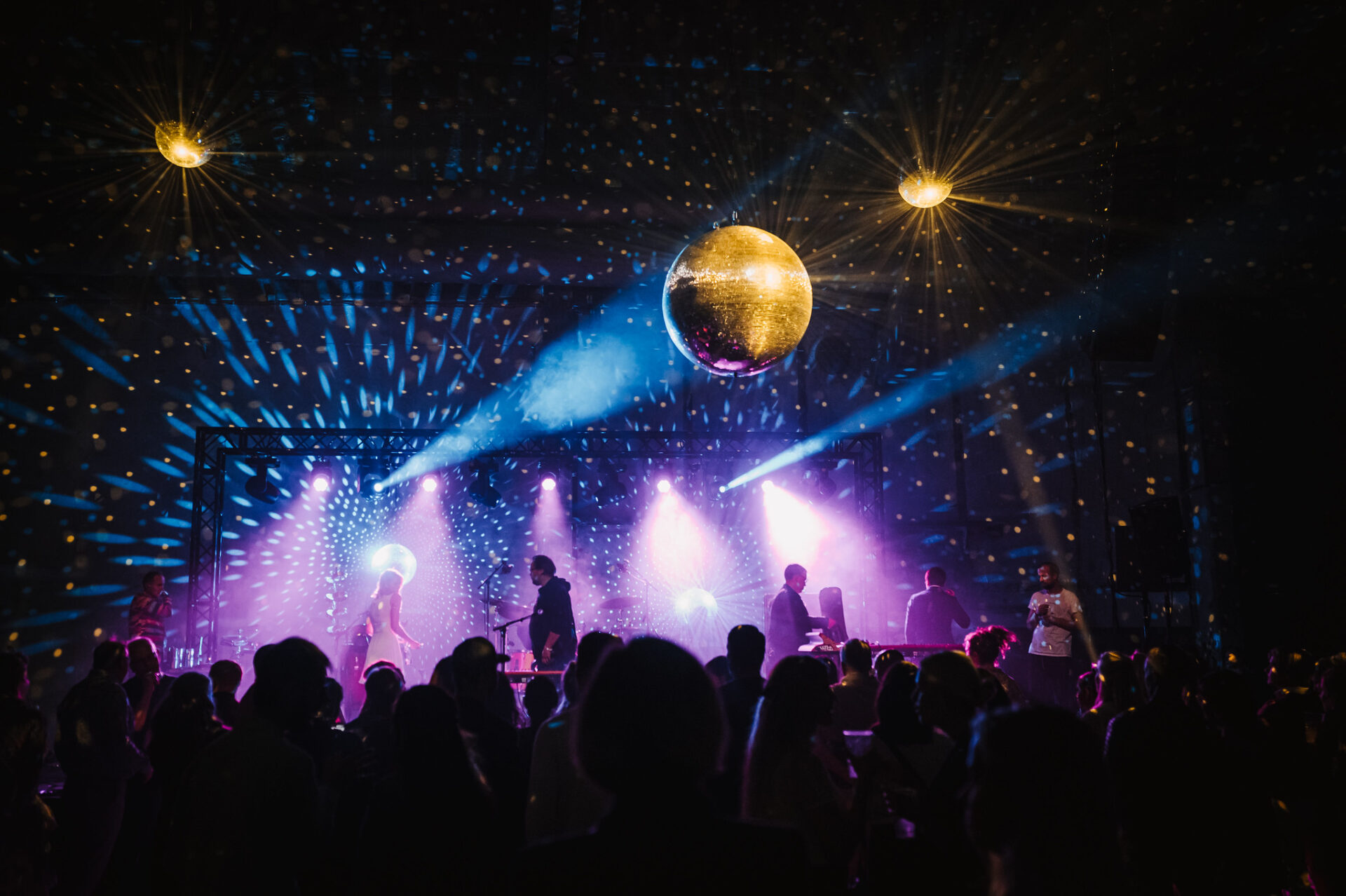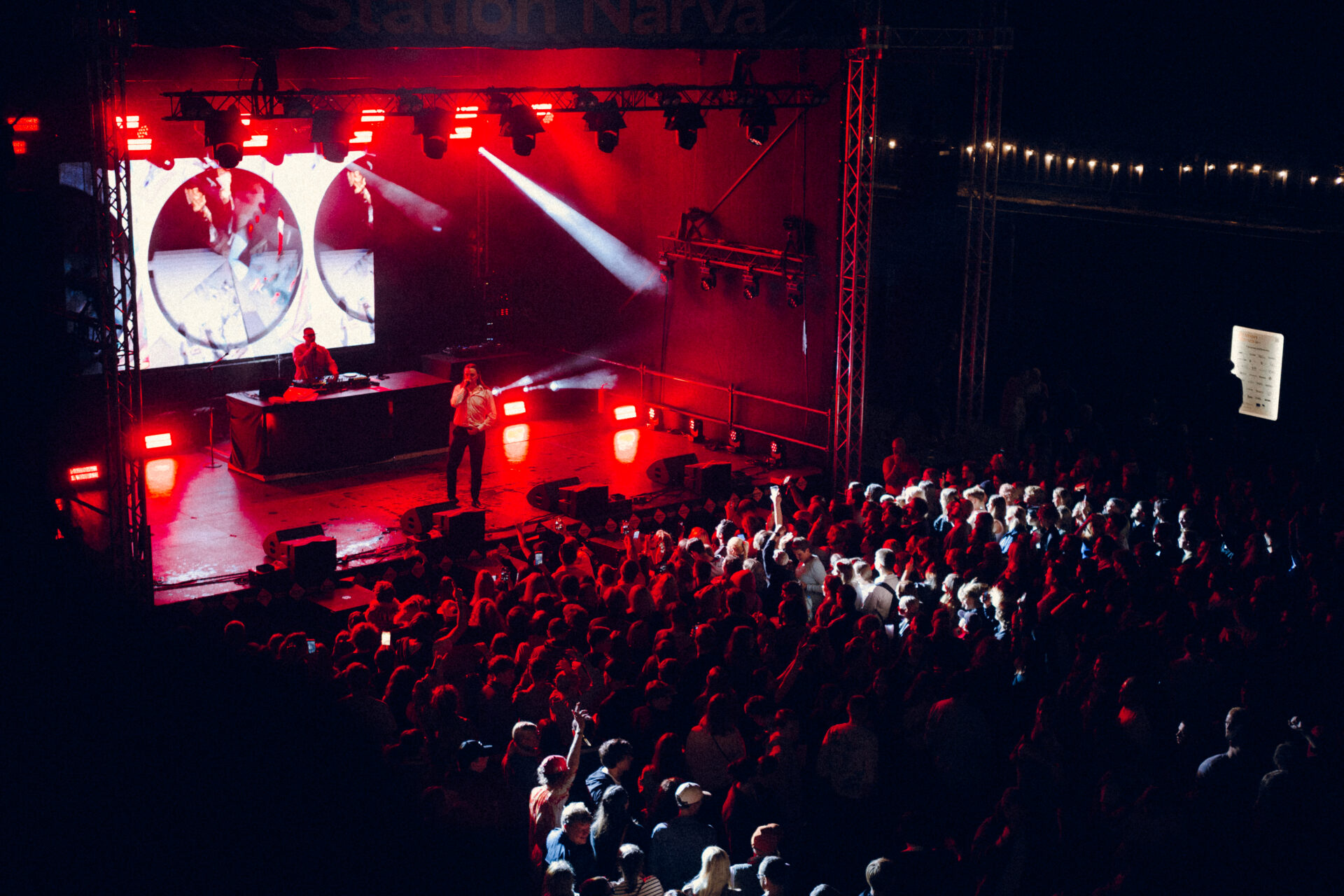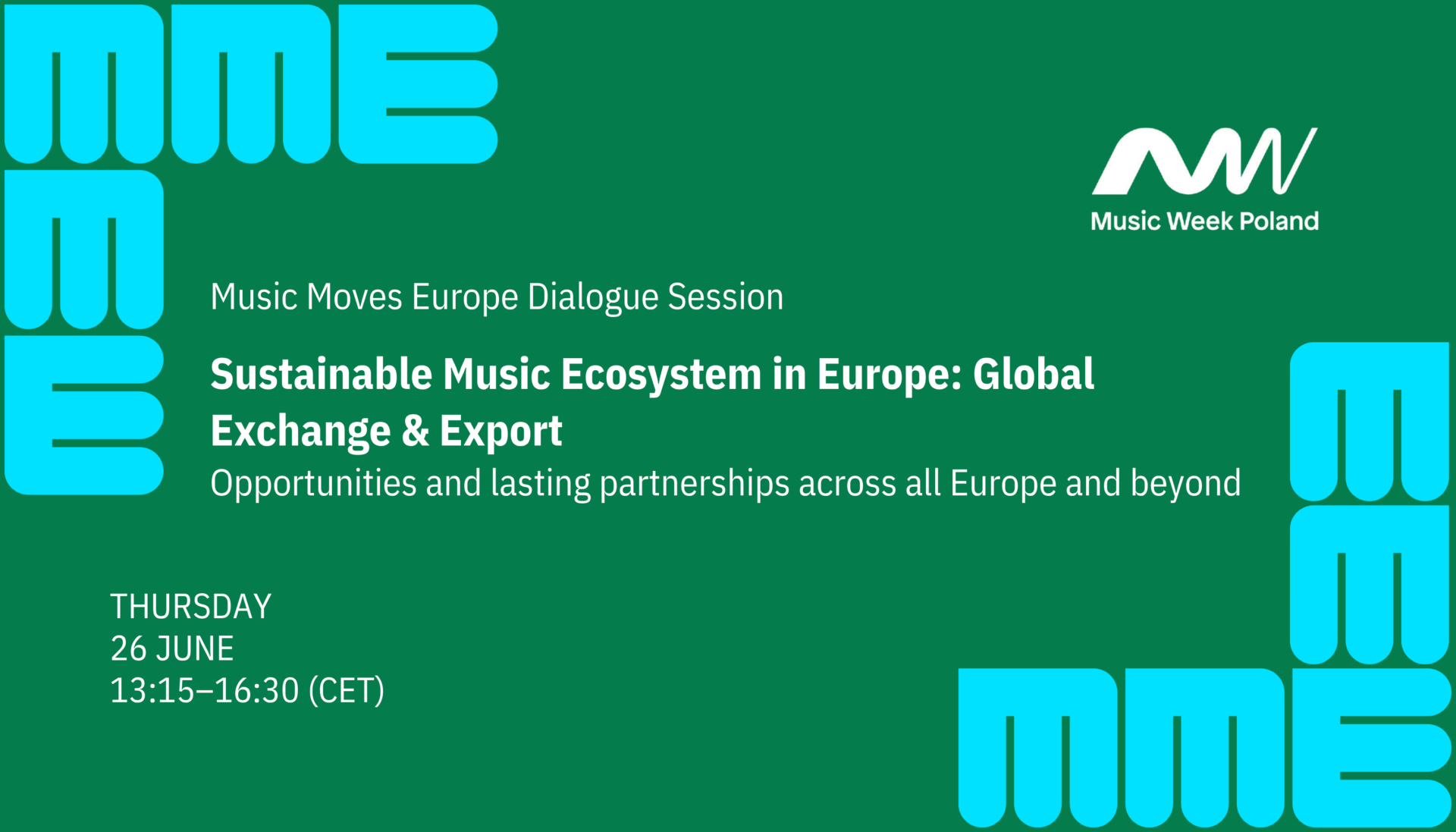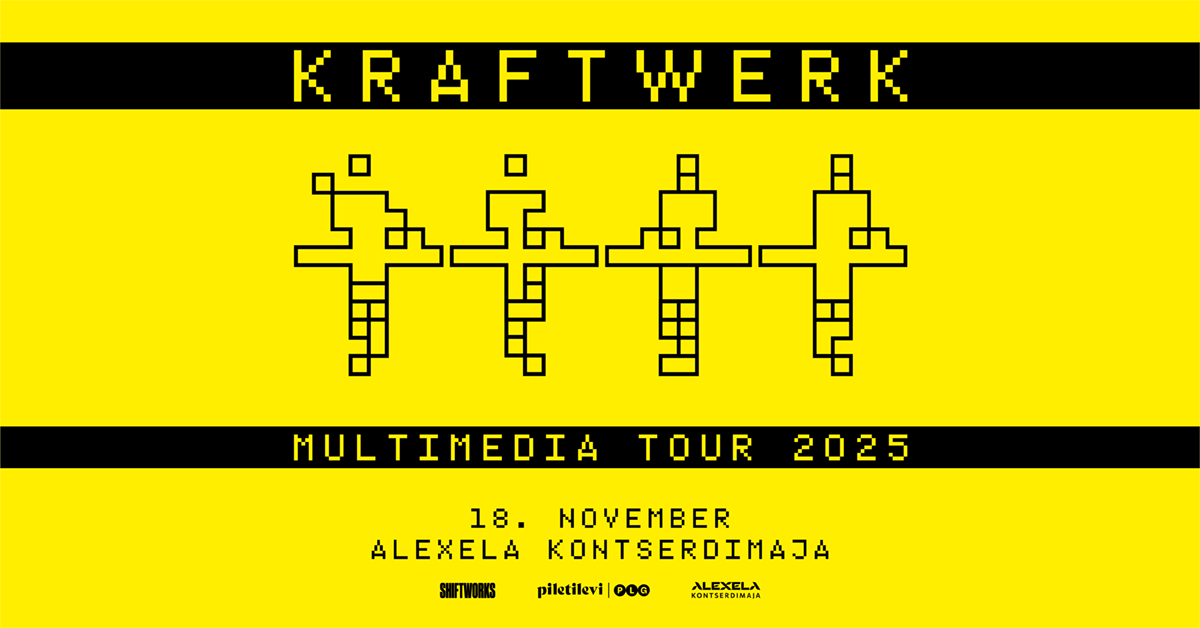The 12th edition of music and culture festival Tallinn Music Week (TMW), initially scheduled to take place in March, took place in Tallinn, Estonia from 27 to 30 August. 140 artists from 10 European countries performed at the music festival and 778 music industry and culture sector representatives participated at the conference. A total of 20 233 visits took place across the festival’s 60 venues over 4 days.
The festival’s opening night, co-curated with Tampere Hall and Tampere 2026 Capital of Culture teams took place at Fotografiska Tallinn. The opening speech was given by Estonian Minister of Culture Tõnis Lukas. President Kersti Kaljulaid gave a public interview at the TMW conference.
During this challenging time for the entire culture and events sector, the main themes that TMW delved into were Music Industry 2.0, Sustainable Development Goals and Neighbours. The TMW Creative Impact Conference, which took place at the Estonian Academy of Arts (EKA), dedicated special attention to crisis strategies and leading change in the music industry and the cultural sector. In addition to the conference and the music programme, which mainly took place in North Tallinn’s Telliskivi Creative City and Port Noblessner, the festival programme included public talks, an art programme, workshops for kids, tour in the Lasnamäe district, restaurant programme Tastes, musician’s flea market and a charity record fair in collaboration with the Gift of Life Cancer Treatment Foundation.
140 artists from 10 European countries performed on 11 stages at the festival. The music showcases were visited by 11 000 people over 3 days, including 778 music and culture industry representatives, who also participated at the Creative Impact Conference. 160 volunteers lent a helping hand. In total, including the free city programme events, the festival had 20 233 visits.
TMW 2020 was organised in a reduced capacity, in line with the rules aimed at reducing the spread of the coronavirus currently applicable to public events. All events adhered to strict hygiene demands as well as a 50% maximum capacity limit.
The festival opened at Fotografiska Tallinn on Thursday, 27 August in collaboration with Tampere Hall, the largest cultural centre in the Nordics, and the Tampere 2026 European Capital of Culture bid team.
In his opening speech, Estonian Minister of Culture Tõnis Lukas greeted partners from Tampere, the TMW team, as well as the festival visitors. “We have always felt awaited in Finland. We are certain that this weekend our guests will feel equally welcome in Estonia,” said Minister Lukas. He also recognised the organisers of TMW by stating, “You were the first festival in Estonia that had to make very difficult decisions in a matter of hours, even prior to the start of the emergency situation in the spring. The postponement of the festival affected people throughout the world. You came out of the situation stronger and richer by important experiences.”
The opening ceremony included performances by the Finnish ambient jazz legend Tapani Rinne with his Radioton project and the Estonian jazz star Kadri Voorand in duo with Mihkel Mälgand. The music showcase festival that lasted until 29 August featured a cross-section of genres from indie pop to new generation trap, from metal to folk, from contemporary classical and from choral music to experimental electronica. Estonia’s talent was represented by over 100 acts.
On 28 and 29 August 128 representatives of the music and culture industries participated in the conference at EKA, 80 of them on location and 48 digitally. The discussions focused on the future strategies of the music industry and cultural management, as well as health and safety measures at public events. The international audience gathered at the auditorium of the Estonian Academy of Arts was greeted by the academy’s rector Mart Kalm, Director of Communications at Telia Estonia Katrin Isotamm and Director of TMW Helen Sildna. Sildna’s opening presentation was joined across the video bridge by colleagues from crisis stricken Beirut and Minsk – co-founder of Beirut Jam Sessions Anthony Semaan and Belarusian music promoter Dmitri Bezkorovainyi.
As Mr Aulake summarised, “Not only do we need a vaccine against the virus, but also a vaccine for societal resilience, with culture as the main ingredient.”
President Kersti Kaljulaid gave a public interview to Benjamin Bathke from the German news service Deutsche Welle within the conference. The interview focused on TMW’s main topics and the role of culture in a changing world. “If artists and creatives adopt an issue, there is no going back,” said Kaljulaid to highlight the significance of arts and culture in the society at all times.
In collaboration with Music Estonia, the conference also included practical workshops and mentoring sessions – from the newest digital marketing trends to a behind-the-scenes look at the electronic music business.
In addition to the music programme and conference, the TMW 2020 included a vast variety of events across the city. Daytime city stage performances spread the festival vibes across the city from Viru Keskus to the Laagna community garden, and from the Telia headquarters to Põhjala Factory in Kopli peninsula. The public talks series held at the record shop Terminal Records & Bar probed topics from the young pop generation’s depression issues to cultural appropriation. The art programme included the Tallinn Thursday gallery tour curated by the Estonian Contemporary Art Development Center, light installations by the students of EKA at Port Noblessner, as well as various exhibitions and a pop-up store from Tampere Hall’s Moomin Museum at Fotografiska Tallinn. The festival also included music themed workshops for children at Vivistop Telliskivi, the TMW Tastes programme that highlighted Tallinn’s restaurants and the musicians flea market. In cooperation with the Gift of Life Cancer Treatment Foundation, a charity record fair raised nearly 5000 euros for supporting cancer patients.
According to Karena Leiger, crisis management adviser at the Estonian Health Board, the festival organisation was conducted in a responsible manner. “TMW took all possible measures aimed at stopping the spread of the virus into consideration, and provided guests as well as artists with guidelines on how to behave responsibly at festival venues,” commented Leiger. She went on to add, “In the current conditions that are extremely difficult, the cultural sector is very open to cooperation. We have seen that when virus prevention measures are taken seriously, events can also be organised in complicated times. An important part of the responsibility lies with the visitors of these events as well.”
According to Eigo Sõster, Head of Meeskond Security, which provided security and crowd management services at many of the TMW concert venues, despite the restrictions and risks, the festival went well. “It was obvious that the organisers and most of the public understood the need to go along with the health and safety measures. The past few months have shown that it is indeed possible to organise events safely, however, it also means that the applied measures have to take into account the characteristics of each venue and event. Our hope is that in the future, if further restrictions are applied, they would be precisely targeted and developed in cooperation with event organisers.”
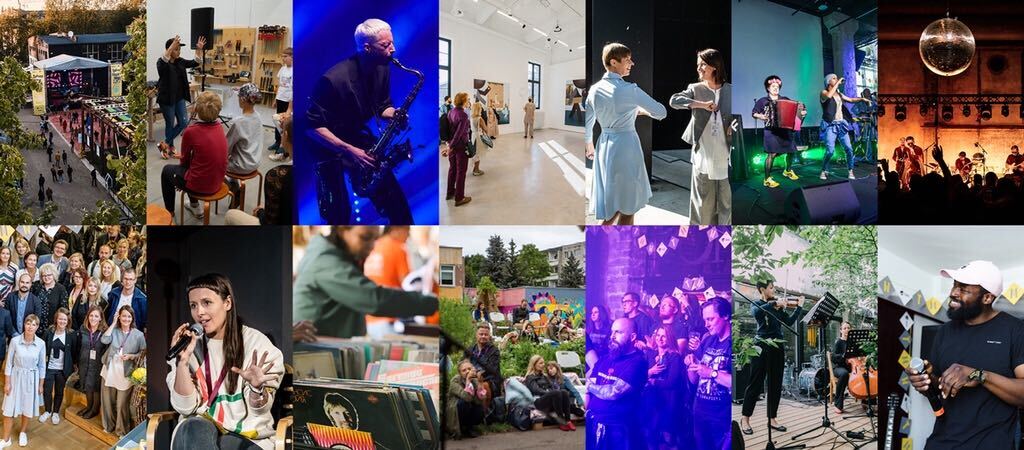
More detailed overview of TMW 2020 including feedback from TMW 2020 visitors and partners can be found on the TMW website.
TMW 2020 in figures:
140 performers from 10 countries
160 volunteers
60 festival locations, including 11 music venues
11 399 music festival visitors
778 conference visitors on-site and digitally
7776 visits across different city festival events
20 233 festival visits in total
